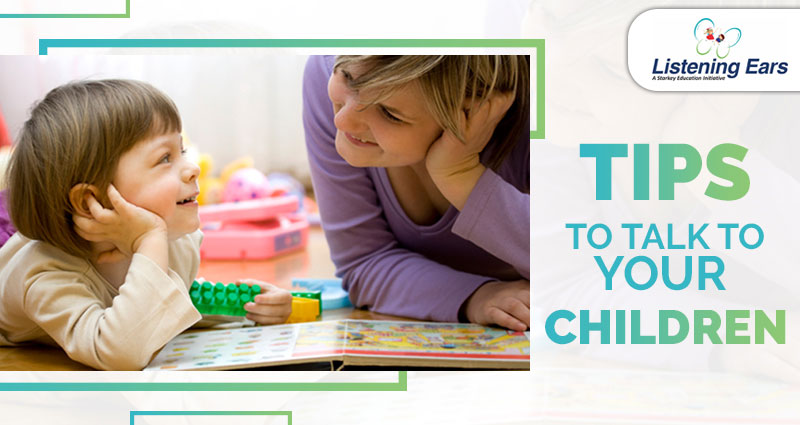Grand Parenting a Child with Hearing Loss
Strategies to Improve Attention and Concentration of Preschoolers and Early School Goers
November 17, 2016IT’S A NOISY PLANET PROTECT YOUR HEARING
November 19, 2016Grandparents have an unique role in the lives of their grandchildren. When faced with the diagnosis of a grandchild’s hearing loss, grandparents are concerned with the well-being of both their adult children and grandchild, making the diagnosis particularly difficult for the grandparent. Though it can take time to recover, grandparents can do much to help their children and grandchild.
Like parents who may not know other children with hearing loss, grandparents need to first throw away any misconceptions they might have about hearing loss and educate themselves about options and possibilities.
Grandparents can be part of the team to help the child with hearing loss discover the possibilities and reach his or her potential.
How Grandparents Can Support a Child with Hearing Loss
Learn about hearing loss and its effect on your grandchild and the family.
Become a member of organizations providing a wealth of information about hearing loss.
For more personal support, seek out knowledge
Read all you can manage about hearing loss, its implications and management. Being informed and knowledgeable can be one of the best ways of coming to understand your grandchild’s hearing loss.
Information might come from:
- Your family and friends
- Your local community
- Services for deaf children
- Voluntary organizations
- Websites, and
- Brochures and information books on hearing loss.
Knowledgeable professionals and other parents and grandparents who have walked in your shoes.
Enjoy:
- Remember to enjoy your grandchild. He/she is a child first and has a hearing loss second.
- Talk to your grandchild, read to your grandchild and just spend time with your grandchild. If you are not living nearby, consider Skyping with your child and grandchild so that your grandchild can see you and hear your voice on a regular basis.
SOME THINGS TO AVOID
AVOID MINIMISING THE CONCERNS
Don’t tell your son or daughter not to worry — “He is so young; he will grow out of it; give it some time”. This is not the case. With early fitting of hearing aids, early intervention and a loving and supportive family, your grandchild has the best possible start.
AVOID JUDGING
Be careful not to judge your son or daughter if they are finding it difficult to come to terms with what their child’s hearing loss may mean for their child.
AVOID BLAMING
Avoid ‘blaming’ one side of the family or an individual family member for the hearing loss — it is unhelpful and upsetting. Even families with a history of hearing loss, can be shocked and upset when the littlest family member is diagnosed with a hearing loss.
AVOID OFFERING OPINIONS
Try not to criticize and be careful about offering opinions unless you’re asked for them. Parents who receive support and good information from professionals and others who have had similar experiences usually make the good choices for their family — even if the choices they make might be different to the choices you might think are best.
LOOK AFTER YOURSELF
When a family member has some extra needs you might want to do everything you can to help. This is a very natural response, but it’s also worth remembering that a little bit of steady help might be far more valuable than a lot of help that you can’t keep up with in the longer term.
THE NEEDS OF YOUR SON OR DAUGHTER
We know that the emotional and practical support grandparents provide to their son or daughter can be very valuable in helping them to adjust to their child’s hearing loss. Here are some specific suggestions that might be useful. Remember, you don’t need to do everything that’s suggested here, they are just ideas that some people find helpful.
FIND OUT WHEN AND HOW YOU’RE NEEDED
Responses to a child being diagnosed with a hearing loss are different from family to family and will change at different times. Take cues from your son or daughter about what role they might like you to play at different times and for different things.
Some parents want their extended families to be a part of things right from the start and look for a lot of contact and support from day one. Other families might want more time before involving other people too much. If there is times that your son or daughter prefers to do things without your input, this isn’t necessarily a reflection of how they feel towards you.
STAY CONNECTED
If your son or daughter wants to talk about things, you’re listening might be just what they need. They are on a steep learning curve and may need a non-judgmental sounding board.
Listening and asking questions show that you are interested. Try and make sure that you ask questions at appropriate times and that your questions are sensitive to how you’re your son or daughter might be feeling.
OFFER HELP WITH APPOINTMENTS
Find out when your grandchild’s appointments are, check if your son or daughter needs any help with transport, looking after other children, support during the appointment, or if you don’t live locally simply a chat once they’ve returned home might be very welcome.
OFFER PRACTICAL HELP
See if your son or daughter would like any practical help. Particularly in the early days, parents spend a lot of time going to appointments. Offering to cook, clean, shop, or help with transport to appointments may be a big help, but also be careful not to take over.
OFFER BABY SITTING
Babysitting and looking after your grandchildren will give you time with your grandchildren as well as giving their parents sometime-out to relax and enjoy themselves. Even just an hour’s break can recharge the batteries!
COMPILED BY-SABEEHA ABBASSI.
(online)
- helpguide.org
- chchearing.org
- healthyhearing.com
- healthqld.gov.ac



